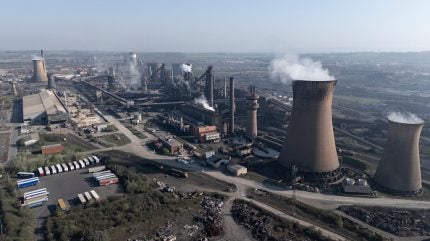
The UK Government has taken control of a Chinese-owned steel plant in Scunthorpe, Lincolnshire, after it was put at risk of closure. Members of Parliament gathered for a rare Saturday meeting to pass an emergency law that allowed the government to take over operations and keep two blast furnaces operating.
The plant is the last in the UK to produce virgin steel, which is important for major construction projects. If it closed down, the UK would become the only G7 economy without virgin steel production capacity, which the government considers central to its growth agenda for housing and railways.
Leading up to the vote, the government had been negotiating with the Chinese Jingye Group, a major steelmaker and the plant’s owner, to keep the Scunthorpe plant open. Last month, the company announced it was losing £700,000 (6.74m yuan) a day and initiated a consultation into its closure.
During negotiations, the government offered to buy the raw materials needed to keep the plant operating. However, Business Secretary Jonathan Reynolds said it eventually became clear that the company had no intention of buying the necessary materials and that it intended “to cancel and refuse to pay for existing orders”.
“The company would therefore have irrevocably and unilaterally closed down primary steel making at British Steel,” Reynolds added.
British Steel was founded in 2016 when Greybull Capital bought Tata Steel’s product division for a token price of £1. After a period of instability that led to a government takeover of British Steel to save it from insolvency, Jingye acquired the plant in 2020. At the time, it said it would invest £1.2bn ($1.6bn) into British Steel to place it on a “more competitive and sustainable footing”.
While the Chinese company still owns the site in Scunthorpe, the new legislation will allow Reynolds to control the plant’s management and its 2,700 workers.
Reynolds has said that nationalising the plant is “the likely option”.
The government is now scrambling to deliver the materials necessary to keep the furnaces burning. Once a furnace shuts, restarting operations is a costly and complicated process.



